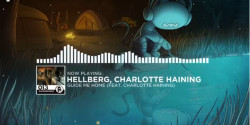Twitch is the online streaming video site that lets you watch the pros play big online games like League of Legends, World of Warcraft, or Counter Strike. Now the service is setting up a music database system so that gamers can add their own soundtracks as they impress viewers with their fighting prowess or webcam commentaries.
The “Twitch Music Library” will feature tunes from “established and burgeoning labels,” the company’s blog post explains, including Monstercat, Mad Decent, Dim Mak, Spinnin’ Records, OWSLA, and Fool’s Gold.
It appears that Twitch is a little twitchy about this step forward, identity-wise. To wit:
“We understand that this is new and may be a bit confusing given Twitch’s long-standing ‘gaming-only’ stance. We view music as an expansion, but gaming will always be our core focus. You’ll see the same front page and directories, and you can still interact in all the same ways with your favorite broadcasters and your fellow viewers. We hope you discover some really great music creators and have the chance to check out some of your favorite musicians, while also having access to a free-to-use library of music for your broadcasts.”
In addition, some of these labels will run their own Twitch radio style music channels. The first one out the door is Monstercat’s, aka Monstercat FM, which comes complete with a bot that gamers can add to their chat bar so chatters know which Monstercat artist is playing.
No surprise that Monstercat is in the vanguard here; the company is way ahead of the game (so to speak) when it comes to innovative music delivery services. Last time I checked with turntable application plug.dj, the Monstercat/Tastycat channel was the number one room. Monstercat also has a licensing service for YouTube video streamers.
Twitch expects “a few bumps along the way,” the blog post continues, since “this is a fairly large and new undertaking.” My guess: read “copyright issues” where you see the word “bumps”. The FAQ for the project encourages individual gamers to upload their own original music or songs, but of course participants can’t include their own covers of popular tunes unless they can show that they’ve bought a compulsory license for the original song.
So it’s complicated, as usual. But I still think the whole project is immensely cool and worth the risks. After all, what are online games anymore without music and sound tracks?



